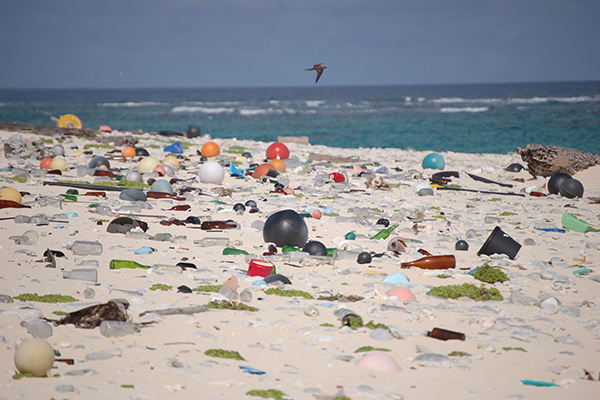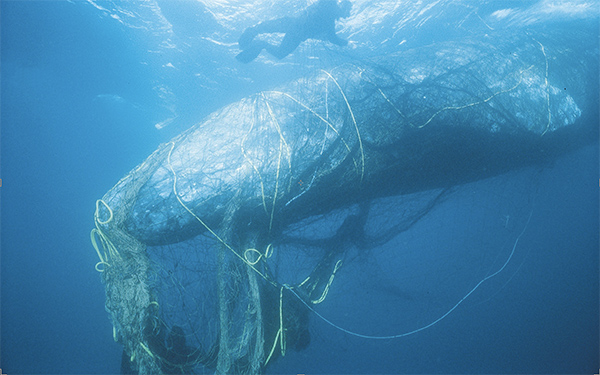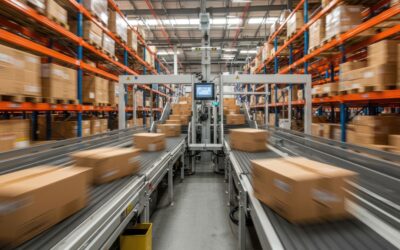Plastic and Our Oceans

Liz Watson – Sustainability Project Leader – at Comply Direct (a Uniserve Group partner company) – recently posted the following article on their website, and it makes very interesting reading.
Comply Direct offer a host of compliance services, now in their 11th year as a UK approved producer compliance scheme, they are the ONLY compliance scheme in the UK to have the Customer Service Excellence standard AND the Investors in People Gold Award. That’s one of the reasons they are the trusted partner of choice for over 1200 compliance members.
Wherever you are. Look around you. I can almost guarantee there will be some plastic in view. Plastics are everywhere.
The first fully synthetic plastic, Bakelite was invented by Leo Baekeland in 1907. Since then, thousands of plastics have been developed, all with slightly different properties. Synthetic plastics can be moulded, designed to resist corrosion for durability and to have a high strength to weight ratio.
All of this means that plastics can help us to protect food, package items, produce lightweight, inexpensive products and even insulate our homes. However, the same properties which make plastic ‘fantastic’ can cause problems when synthetic plastic comes to the end of its useful life.
Synthetic plastics are derived from either petroleum or natural gas, both of which are fossil fuels. Although some plastics such as Polyethylene Terephthalate (PET), commonly found in drink and water bottles are recyclable, only 1/3 of plastic packaging purchased by UK consumers is recycled, the remainder ending up in landfill. However, the problem of waste plastic is much bigger than the UK alone.
8 million tonnes of plastic enter the World’s oceans each year. Plastic in the oceans can be sharp, toxic and hazardous to marine life. Microplastics (small plastic pieces < 5 mm in size) can enter the marine food chain. Our fascination with the ocean, which is often seen as the World’s last wilderness, is reflected in the consumer passion and media attention which the rise in ocean plastics and impact on marine life is receiving.
Naturalist David Attenborough, who has just finished production of the latest addition to his iconic Blue Planet Series, has urged for action on plastics. Emotive images of wildlife caught in plastic bags, entangled in plastic wrapping and clutching plastic debris have captured the hearts and minds of the public. The recent discovery of 30 carrier bags in the body of a whale on the coast of Norway is one example, which highlights the emotive nature, and scale of the problem. By 2050, there will be more plastic, than fish in the ocean (by weight).

So, is it all doom and gloom, or can we make a difference?
Our reliance on plastic is enormous, and there are many benefits of plastic, helping to reduce food waste by prolonging the shelf life of food, for example. However, although plastic can be recycled, over 90% of plastics are currently derived from virgin feedstocks.
So, what are governments and other organisations doing?
- Legislation: The introduction of a plastic bag charge in the UK, saw an 85% decrease in plastic bag use, indicating that small financial consequences can initiate large changes in consumer behaviour. One leading supermarket have gone a step further, halting the sales of the 5p single use carriers and moving to offering only a 94% recycled plastic ‘bag for life’ at 10p.
- Legislation: Deposit return schemes are common place in many European countries; the schemes, where a small refundable deposit is added to the price of certain products with the money being paid back to the customer on the return of the empty packaging. Both Scotland and England are looking at the possibility of implementing deposit return schemes. Read more on our Return Scheme Blog HERE.
- Using ocean plastic: Ecover have announced that they will be producing a limited edition plastic bottle containing 50% ocean plastic to package their washing up liquid. In a similar vein, Proctor and Gamble have announced that they will introduce a new bottle with a mixture of post-consumer recycled and ocean plastic for its iconic ‘Fairy’ brand detergent. This new bottle will contain 10% ocean plastic and will reach customers in 2018. Both products with the aim of increasing consumer awareness.
- Lucozade received some very public criticism for its use of PET bottles with a plastic shrink outer which makes them very difficult to recycle. The company recently announced it is looking into alternative, more recyclable packaging solution.
- Adidas are making shoes from reclaimed ocean plastic.
What other solutions are out there?
- Compostable packaging – is completely biodegradable after use. Not suitable for every application, but becoming increasingly popular. Compostable packaging cannot be recycled alongside other plastics, so compostable and recyclable materials need to follow separate pathways after use.
- Bio-based plastics – originate at least in part from biomass, not to be confused with compostable packaging as bio-based plastics are not necessarily compostable at end of life. Mushroom based alternatives to polystyrene are already in production and can be composted at end of life.
For further information on Comply Direct, and how their services can benefit your company, please visit their website at www.complydirect.com.
Follow Us:
Zenith Logistics
Logistics solutions synonymous with quality, reliability and innovation, all delivered at the lowest possible cost.
Environmental Compliance Made Simple
Comply Direct can give you the peace of mind that you are fully compliant under the packaging, WEEE or batteries environmental legislation.
The Supply Chain Academy
Delivering outstanding global supply chain capabilities to business.
Environmental Compliance Made Simple
Comply Direct can give you the peace of mind that you are fully compliant under the packaging, WEEE or batteries environmental legislation.
UniOcean Lines
The technologically advanced 21st century global carrier
Environmental Compliance Made Simple
Comply Direct can give you the peace of mind that you are fully compliant under the packaging, WEEE or batteries environmental legislation.
CP Training
Outstanding business-led courses for managers and aspiring managers from the global go-to supply chain specialists.
Environmental Compliance Made Simple
Comply Direct can give you the peace of mind that you are fully compliant under the packaging, WEEE or batteries environmental legislation.
More News…..
Uniserve Group is proud to be shortlisted for two Supply Chain Excellence Awards
Uniserve has been shortlisted in two Supply Chain Excellence Award categories; Retail Supply Chain Excellence and Supply Chains Operations – Partnership. Our first shortlisting for the ‘Retail Supply Chain Excellence’ Award recognises Uniserve’s 2024 emergency...
Key e-commerce logistics challenges and how to overcome them
Uncover the biggest e-commerce logistics challenges from last-mile delivery to cross-border hurdles, and how to resolve them.
What is fulfilment in e-commerce? A strategic introduction for online retailers
Learn the e-commerce fulfilment definition and explore how full-stack e-commerce fulfilment supports efficient, scalable retail operations.



